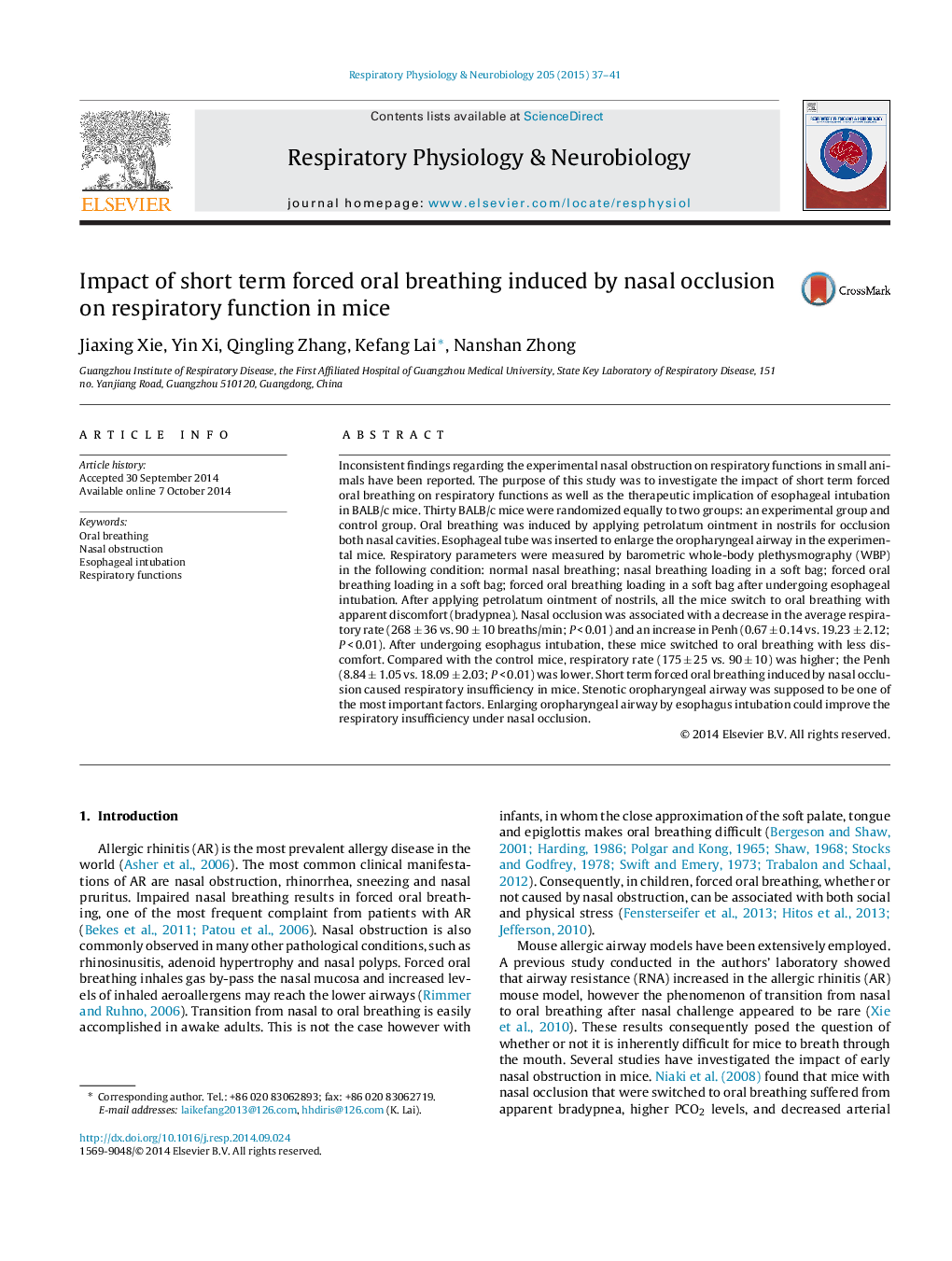| Article ID | Journal | Published Year | Pages | File Type |
|---|---|---|---|---|
| 5925889 | Respiratory Physiology & Neurobiology | 2015 | 5 Pages |
â¢Petrolatum ointment of nostrils, all the mice switch to oral breathing with apparent discomfort.â¢Nasal occlusion was associated with a decrease in the average respiratory rate.â¢Nasal occlusion was associated with an increase in Penh.
Inconsistent findings regarding the experimental nasal obstruction on respiratory functions in small animals have been reported. The purpose of this study was to investigate the impact of short term forced oral breathing on respiratory functions as well as the therapeutic implication of esophageal intubation in BALB/c mice. Thirty BALB/c mice were randomized equally to two groups: an experimental group and control group. Oral breathing was induced by applying petrolatum ointment in nostrils for occlusion both nasal cavities. Esophageal tube was inserted to enlarge the oropharyngeal airway in the experimental mice. Respiratory parameters were measured by barometric whole-body plethysmography (WBP) in the following condition: normal nasal breathing; nasal breathing loading in a soft bag; forced oral breathing loading in a soft bag; forced oral breathing loading in a soft bag after undergoing esophageal intubation. After applying petrolatum ointment of nostrils, all the mice switch to oral breathing with apparent discomfort (bradypnea). Nasal occlusion was associated with a decrease in the average respiratory rate (268 ± 36 vs. 90 ± 10 breaths/min; P < 0.01) and an increase in Penh (0.67 ± 0.14 vs. 19.23 ± 2.12; P < 0.01). After undergoing esophagus intubation, these mice switched to oral breathing with less discomfort. Compared with the control mice, respiratory rate (175 ± 25 vs. 90 ± 10) was higher; the Penh (8.84 ± 1.05 vs. 18.09 ± 2.03; P < 0.01) was lower. Short term forced oral breathing induced by nasal occlusion caused respiratory insufficiency in mice. Stenotic oropharyngeal airway was supposed to be one of the most important factors. Enlarging oropharyngeal airway by esophagus intubation could improve the respiratory insufficiency under nasal occlusion.
